As a nutritionist, I’ve always been fascinated (okay borderline obsessed!) by the digestive process. And have said that we’re not what we eat, but rather what we digest. With this, I was constantly searching for ways to naturally improve digestion at a core level, which is where probiotics came into the picture.
This topic is timelier than ever, as the research on the importance of probiotics is becoming indisputable. For example:
- According to an investigation conducted by Stanford University, there are up to 100 trillion microbes that reside in our gastrointestinal tract representing thousands of species that affect our “adaptive immune systems, energy production, and obesity [1].”
- A study published in the Journal of Biological Psychiatry links bacteria balance to changes in your mood and mental health [2].
- Harvard researchers have found and noted that certain bacteria in the gut influence the development of aspects of the immune system, such as correcting deficiencies and increasing the numbers of certain T cells [3].
This is all just scratching the surface of the research. There are countless studies emerging, from weight loss to mental health and beyond, which illustrate the healing power of probiotics.
The Problem with Probiotic Propaganda
If you’re like nearly every health seeker I’ve ever met, you’ve had experience with probiotics, whether it be fermented foods (yogurt, sauerkraut, kefir, kombucha and so on)—or supplements. I’m also betting you probably didn’t notice much of a difference from consuming those foods or taking them. I’ll explain why in more detail in just a moment.
First, it’s critical to realize that probiotic “strains”—which are the individual variants of bacteria—make all the difference. The notion of judging a product or probiotic as “good” or helpful without knowing what strains are in it—is like saying a water is good just because it has “vitamins” in it.
We both know that’s not true! And it’s the same with probiotics.
Sadly, as I dug deeper, I quickly realized that most of the probiotic products, be it food or supplements, don’t contain the most important individual probiotic strains. This was a light bulb moment for me over 5 years ago. It turns out that nature, as it often does, holds the perfect solution, and it’s found in the soil.
Humans Have Always Been Symbiotic with the Soil, Until Recently
Thousands of years ago, we would have been eating fruits and vegetables straight from a tree, or straight from the ground. Nowadays, that’s not where most people get their food from. Now that our produce is sprayed and injected with all kinds of chemicals, the good, beneficial bacteria is being killed off.
In excellent research published in the medical journal, Nature—researchers Diana Wall, Uffe Nielsen and Johan Six describe how soils contain a rich biota. Yet also how this is threatened because of intensive agriculture and poor land management [4].
Soil biodiversity has a key role in providing food, clean water and air, and in suppressing disease. We are creatures of the soil, and have been for millions of years. It’s only until the last few hundred years that things have been so thoroughly sterile.
Sterility is good in blunting the spread of infectious disease, yet very damaging when it comes to the health of our microbiome, or inner terrain of our gut/digestive/elimination system.
Because I wanted to harness the power of the bacteria that we originally encountered in nature, I came to a type called Soil-Based Organisms, or SBO’s for short.
Soil-Based Organisms Are Nature’s Original Probiotics
Soil-Based Organisms or SBO’s are microscopic friendly bacteria abundant in the natural world, but almost 100% absent from modern civilized life. Most probiotics strains, such as those found in cultured foods, grow and reproduce in a predominantly lactic acid environment. The problem is these strains are sensitive to temperature, air and stomach acid and other factors—and rarely survive the entire digestive process.
SBO’s, on the other hand, are much hardier and mimic the natural flora found in ancient ancestral diets. They are more resistant to digestion, don’t require refrigeration and can thrive, promoting growth of other probiotics, in the intestines.
Soil-based microbes are what we’d normally find in nature–when eating organic food from your garden, or a berry in the wild–they are Mother Nature’s first digestive and immune system aid.
These microscopic life forms tend to be “dormant” on our foods (or in supplements) until they safely pass through the digestive process and then become activated in the presence of moisture. Once inside your intestinal tract, they can aggressively work against pathogens–helping reduce or eliminate yeast, molds and other unfriendly bacteria, while also paving the way for the proliferation of a variety of friendly flora.
SBO Strains Are Resident Forming (and Why That Matters)
As I noted in a recently blog on kombucha and other fermented foods, there’s a big difference between strains that are resident forming, and those which are transient. It’s easy to assume yogurt and other cultured foods are the same as consuming a probiotic. And that they will replenish your gastrointestinal tract with healthy bacteria in the same way.
It’s not true, of course.
First, though, let’s be honest: most “yogurt studies” are funded by the huge companies who manufacture and sell yogurt. Some were exposed very recently. Beyond that, there are MANY other reasons NOT to consume yogurt (sugar, commercial milk/dairy loaded with hormones and impurities and often other additives, plus the fact that high protein dairy is insulinogenic and converted into sugar). Yet I digress [5]!
The problem with nearly ALL probiotic food products is the strains inside them. They are nearly always of the transient variety, meaning they pass through your intestinal tract WITHOUT taking up residence and don’t provide therapeutic or long-term value beyond their consumption. Being extra sensitive to temperature, air and stomach acid and other factors—they either die or pass through digestion without ever taking hold.
Resident-forming probiotic strains, on the other hand, will travel all the way to the lower intestine, where they come alive. Like a seed, warm temperatures and moisture stimulate germination. Soil-based probiotics are well-adapted to the environment of the gut, and have been shown to remain in the digestive tract where they can provide long term benefit [6].
The Product of Millions of Years of Evolution
Our bodies have evolved over the millennia to co-exist with bacteria in the outer world and within; this evolution is how we came to have what scientists call the microbiome.
Prior to humans modern food practices, the human diet consisted primarily of wild plant foods; vegetables, roots, fruit and berries and—depending on who you talk to—perhaps limited amount of animal foods. This ancient landscape was rich in fruits and vegetables gathered from bushes, trees, and from the ground. The food was eaten in nature, and there were certainly no faucets around to wash anything!
If soil-based bacteria was present on any of the plant matter we consumed, the bacteria was ingested along with the food, and traveled to the digestive tract where it colonized the human gut and supported a symbiotic relationship humans shared with the bacteria.
Soil in this pre-agricultural era was thriving with soil microbes. These soil bacteria are critical to enriching plants with important nutrients such as vitamin B-12.
Modern conventional farming practices utilizing pesticides, herbicides and other chemicals—as well as food preservation and sterilization practices—have ensured we get next to ZERO soil-based bacteria in our modern diet.
The Research Behind Soil-Based Probiotics
The dominant bacteria found in the small and large intestine are species of Lactobacilli, Streptococci, Enterobacteria, Bifidobacteria, Bacterioides and Clostridia, yet Bacillus species—of which SBO’s are part of—also exist here. This Oxford research paper states that [9]:
Bacillus species appear to be able to adopt symbiotic relationships both externally (e.g., with plants) as well as internally with whatever organism ingests them.
The product I personally use and recommend contains Bacillus subtilis, a proven probiotic species found in traditional foods. All in all, it contains 29 symbiotic, resident-forming strains that reflect nature and bacterial environment from which we evolved.
This was proven by researchers, who noted the ability of SBO’s to remain in the intestines instead of just being a transient visitor, thus becoming PART of your gut terrain and helping it be healthy. Further evidence exists to support the notion that spore-forming bacteria are well adapted to not only surviving in the harsh environment of the digestive tract, but thriving [10].
Subjects in the aforementioned study excreted more spores than they were given, which means the bacteria GREW and repopulated in their gut. The presence of probiotic bacteria spores has been documented up to 27 days following a single dose as well.
Soil-based organisms have also been shown to help with digestive issues and candida, and much more research on them is currently underway [11].
Are There Any Drawbacks to SBO’s?
One of the objections to consuming soil-based organisms is the idea that—while incidental exposure to SBO’s in nature can be good training for our immune systems—they can be risky if taken supplementally.
The core premise is that many of us have gone for too long without exposure to SBO’s, and if our gut microbiome is in such a state of dysbiosis—these “foreign” bacteria will do more harm than good.
They point to the fact that they are “spore-forming” and proliferate rapidly as further evidence of such risk. The fact that most strains are from the Bacillus family and are extremely “hardy” is another point of critique.
To me, however, I think all of these points speak to the utility and desirability of soil-based probiotic strains. Of course, if one has a highly compromised gut or immune system, it’s best not to introduce anything strong without thorough testing and help from a licensed medical practitioner. However, beyond that, I’ve seen many who struggle with less severe digestive/microbiome issues do amazingly well—reducing gas, bloating, and other digestive problems—rapidly, using only soil-based probiotics.
One might want to merely begin with a small amount if that’s a certain and do a slower phase of re-exposing the gut to them. However, I’ve not personally seen the need for this with anyone in my community.
Lastly, the fact that they are adaptable and survive stomach acid is in my mind another major benefit.
Overall, I understand this argument and think exercising caution (with anything) is good; however, beyond a slower re-introduction into the body, I believe SBO’s are amongst the most natural substances we could ever consume and have seen nothing but positive effects in my own body and countless others.
How I Personally Use Soil-Based Probiotics
At the beginning of this article, I promised to do my best to present a clear case (backed by research) for why soil-based organisms are worth considering. And I believe I’ve done that.
While I always strive to be objective and as researched as possible, I should also disclose that I offer a soil-based probiotic product, which you can see here.
Personally, I love them and have been taking them daily for over 5 years now. I don’t offer many products on my site, and I endorse no outside supplements; so the fact that I feel so strongly about them should say something.
Because of my personal success with them—along with how many of my circle of clients and broader community has benefited—I’m often asked how I take soil-based probiotics on a regular basis.
Typically, I begin with 2 capsules per day. I usually recommend just doing the 2 capsules in the morning with your lemon water, as I do, because if you wait until later to take one or both capsules, there’s a good chance you’ll forget.
I’m also often asked about results and when they will be noticeable. That, of course, is hard to say because everyone really is different. Some notice a difference in the first few days, yet for others, it may take a full month. Everyone’s body and intestinal terrain is in a unique place that makes it impossible to universalize.
Ultimately, this article is not about my personal usage or product—it’s about whether the argument for soil-based probiotics makes sense to you; and whether you should consider them over “probiotic” food or supplement products that are based on lactic-acid bacteria, rather than the soil.
For me, the answer is clear—yet we must all make our own health decisions—and I trust you will do what’s right for you.
My role is to help and support you any way I can.
With love and gratitude,
Kimberly
[1] Some of My Best Friends Are Germs[2] Are Probiotics a Promising Treatment Strategy for Depression?
[3] What you should know about: Probiotics
[4] Soil biodiversity and human health
[5] Food companies funded these 8 studies to prove their products are ‘healthy’
[6] Bacillus Probiotics: Spore Germination in the Gastrointestinal Tract
[7] Streptomyces inside-out: a new perspective on the bacteria that provide us with antibiotics
[8] Sustainable Approaches to Controlling Plant Pathogenic Bacteria
[9] The use of bacterial spore formers as probiotics
[10] The Intestinal Life Cycle of Bacillus subtilis and Close Relatives
[11] Anti-candida effect of bacillomycin D-like lipopeptides from Bacillus subtilis B38

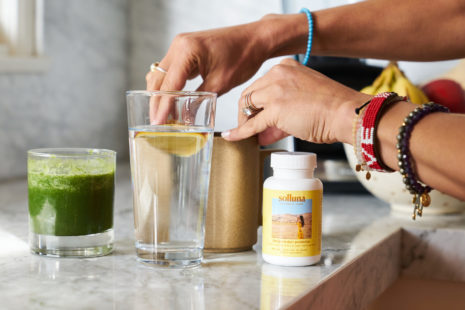

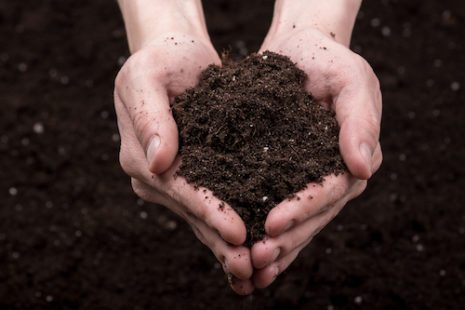
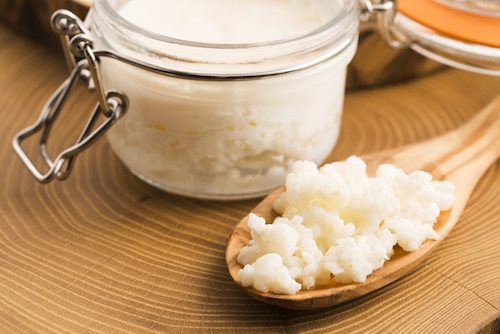
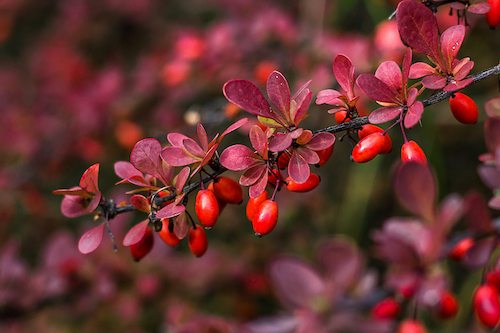
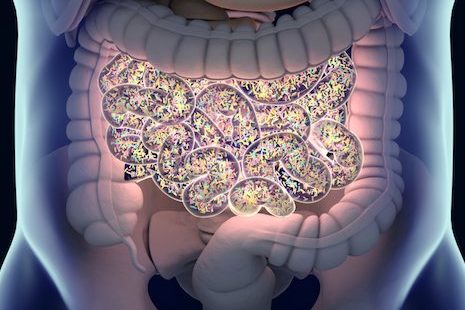
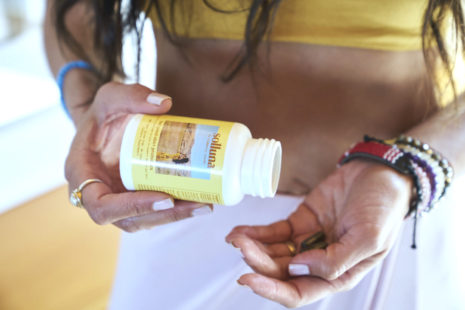

Thank you Kimberly for being awesome and posting this very helpful information :)
Thanks my love! Xo